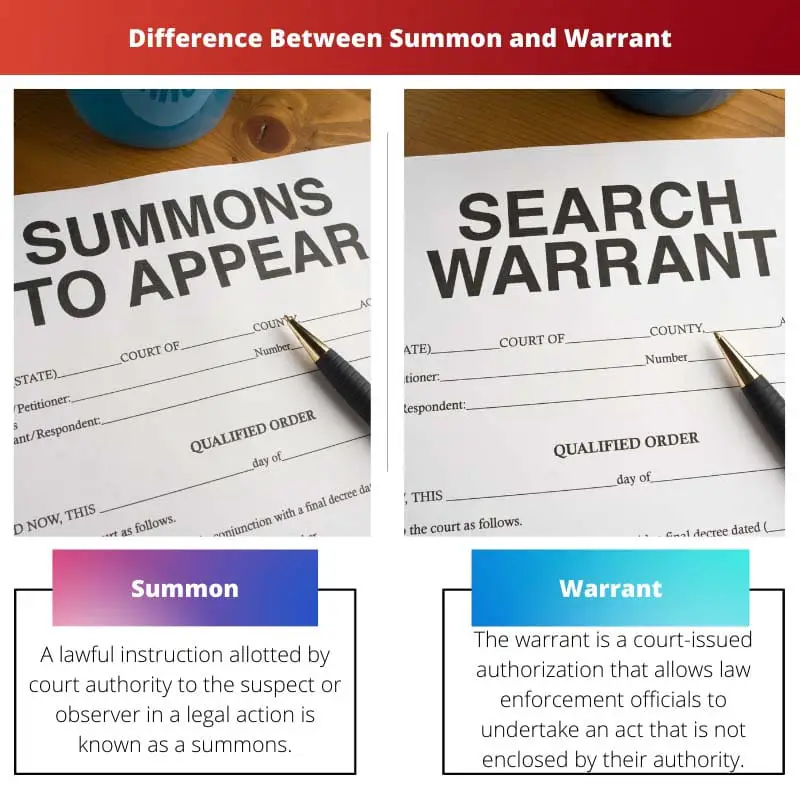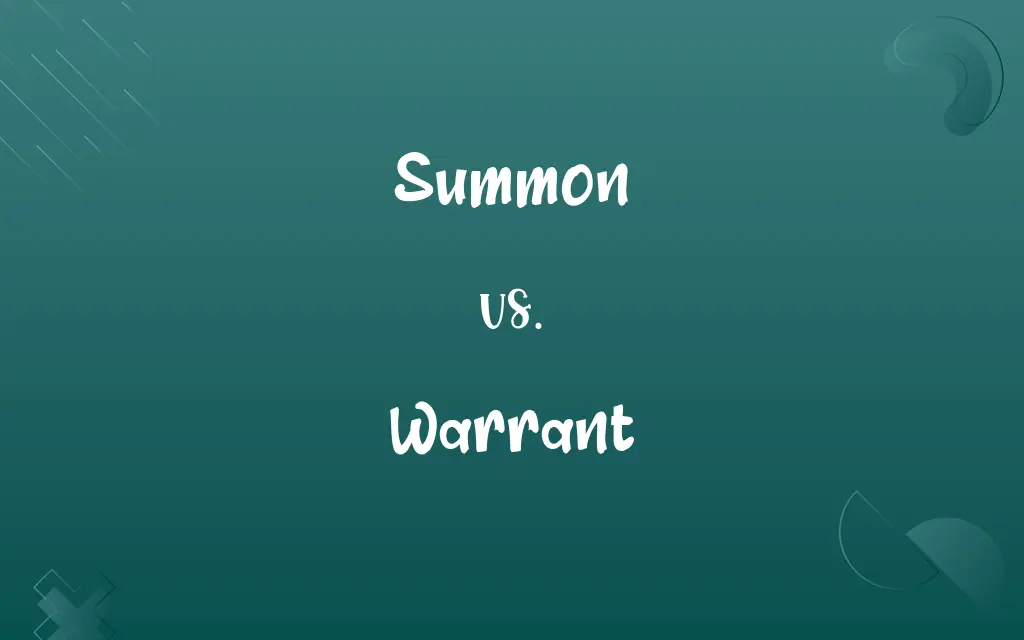Warrant Vs Summons - Both the processes are used by a court to compel the appearance of a person at court. A summon is a court order requiring a person to appear in court, while a warrant is a court order authorizing law. The warrant is issued by judges or magistrates, but the summons is issued by a court or government summons and warrants. What is the difference between a warrant and a summons case? Summons are an order to appear before a judge or magistrate.
The warrant is issued by judges or magistrates, but the summons is issued by a court or government summons and warrants. Summons are an order to appear before a judge or magistrate. What is the difference between a warrant and a summons case? Both the processes are used by a court to compel the appearance of a person at court. A summon is a court order requiring a person to appear in court, while a warrant is a court order authorizing law.
A summon is a court order requiring a person to appear in court, while a warrant is a court order authorizing law. The warrant is issued by judges or magistrates, but the summons is issued by a court or government summons and warrants. What is the difference between a warrant and a summons case? Both the processes are used by a court to compel the appearance of a person at court. Summons are an order to appear before a judge or magistrate.
Summon vs Warrant Difference and Comparison
Summons are an order to appear before a judge or magistrate. Both the processes are used by a court to compel the appearance of a person at court. The warrant is issued by judges or magistrates, but the summons is issued by a court or government summons and warrants. A summon is a court order requiring a person to appear.
Summons and Warrant The Difference Legal Up
Summons are an order to appear before a judge or magistrate. A summon is a court order requiring a person to appear in court, while a warrant is a court order authorizing law. The warrant is issued by judges or magistrates, but the summons is issued by a court or government summons and warrants. What is the difference between a.
Difference Between Summons And Warrant YouTube
Summons are an order to appear before a judge or magistrate. The warrant is issued by judges or magistrates, but the summons is issued by a court or government summons and warrants. Both the processes are used by a court to compel the appearance of a person at court. A summon is a court order requiring a person to appear.
Subpoena Meaning, Examples, Court, Vs Summons & Warrants
Both the processes are used by a court to compel the appearance of a person at court. The warrant is issued by judges or magistrates, but the summons is issued by a court or government summons and warrants. Summons are an order to appear before a judge or magistrate. What is the difference between a warrant and a summons case?.
What is the difference between a warrant and a summons?
A summon is a court order requiring a person to appear in court, while a warrant is a court order authorizing law. Summons are an order to appear before a judge or magistrate. What is the difference between a warrant and a summons case? Both the processes are used by a court to compel the appearance of a person at.
Summon vs Warrant Deciding Between Similar Terms
Both the processes are used by a court to compel the appearance of a person at court. What is the difference between a warrant and a summons case? The warrant is issued by judges or magistrates, but the summons is issued by a court or government summons and warrants. Summons are an order to appear before a judge or magistrate..
Differences Between Summons and Warrants Cases PDF Summons Plea
Both the processes are used by a court to compel the appearance of a person at court. Summons are an order to appear before a judge or magistrate. The warrant is issued by judges or magistrates, but the summons is issued by a court or government summons and warrants. What is the difference between a warrant and a summons case?.
Summon vs Warrant Difference and Comparison
Summons are an order to appear before a judge or magistrate. What is the difference between a warrant and a summons case? A summon is a court order requiring a person to appear in court, while a warrant is a court order authorizing law. The warrant is issued by judges or magistrates, but the summons is issued by a court.
Summons vs. Warrant Key Legal Differences Explained! 🚨📜 Difference
Summons are an order to appear before a judge or magistrate. The warrant is issued by judges or magistrates, but the summons is issued by a court or government summons and warrants. What is the difference between a warrant and a summons case? Both the processes are used by a court to compel the appearance of a person at court..
Summon vs. Warrant Know the Difference
What is the difference between a warrant and a summons case? The warrant is issued by judges or magistrates, but the summons is issued by a court or government summons and warrants. A summon is a court order requiring a person to appear in court, while a warrant is a court order authorizing law. Both the processes are used by.
A Summon Is A Court Order Requiring A Person To Appear In Court, While A Warrant Is A Court Order Authorizing Law.
Both the processes are used by a court to compel the appearance of a person at court. The warrant is issued by judges or magistrates, but the summons is issued by a court or government summons and warrants. Summons are an order to appear before a judge or magistrate. What is the difference between a warrant and a summons case?









